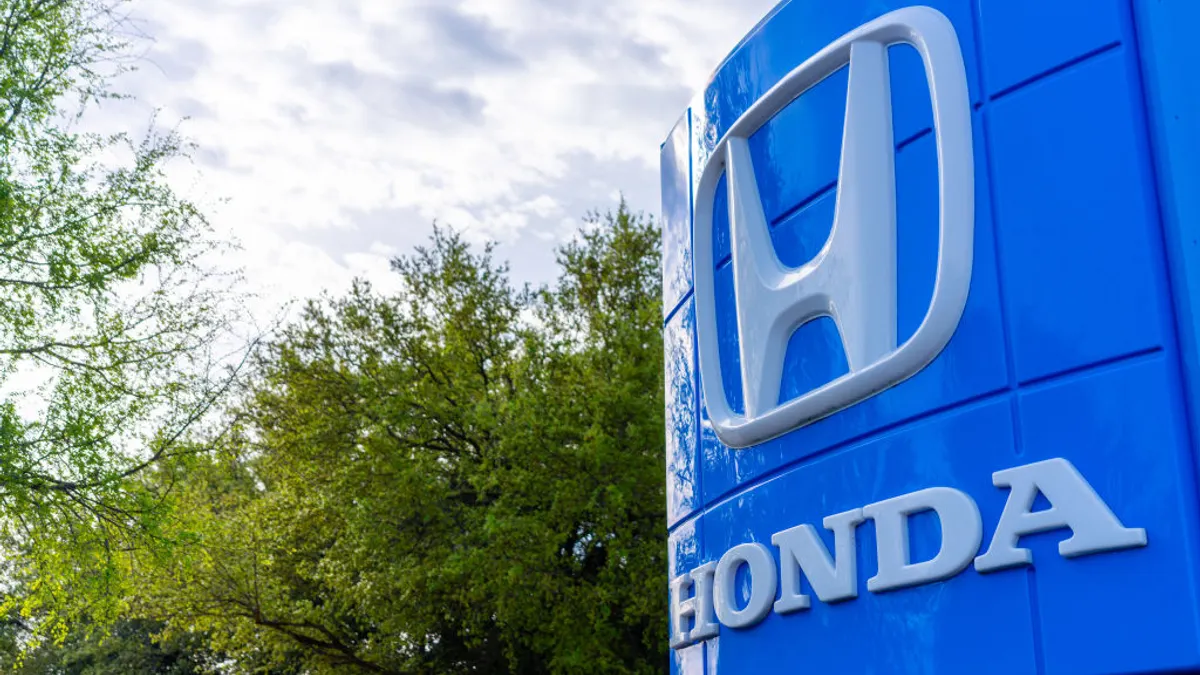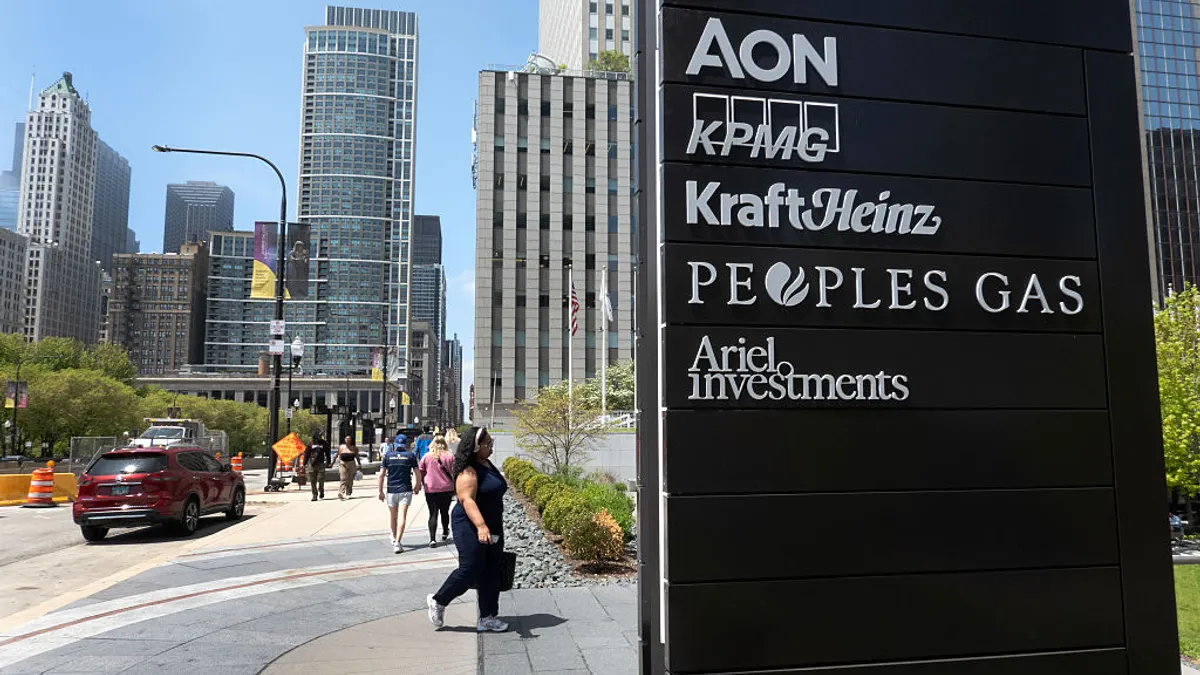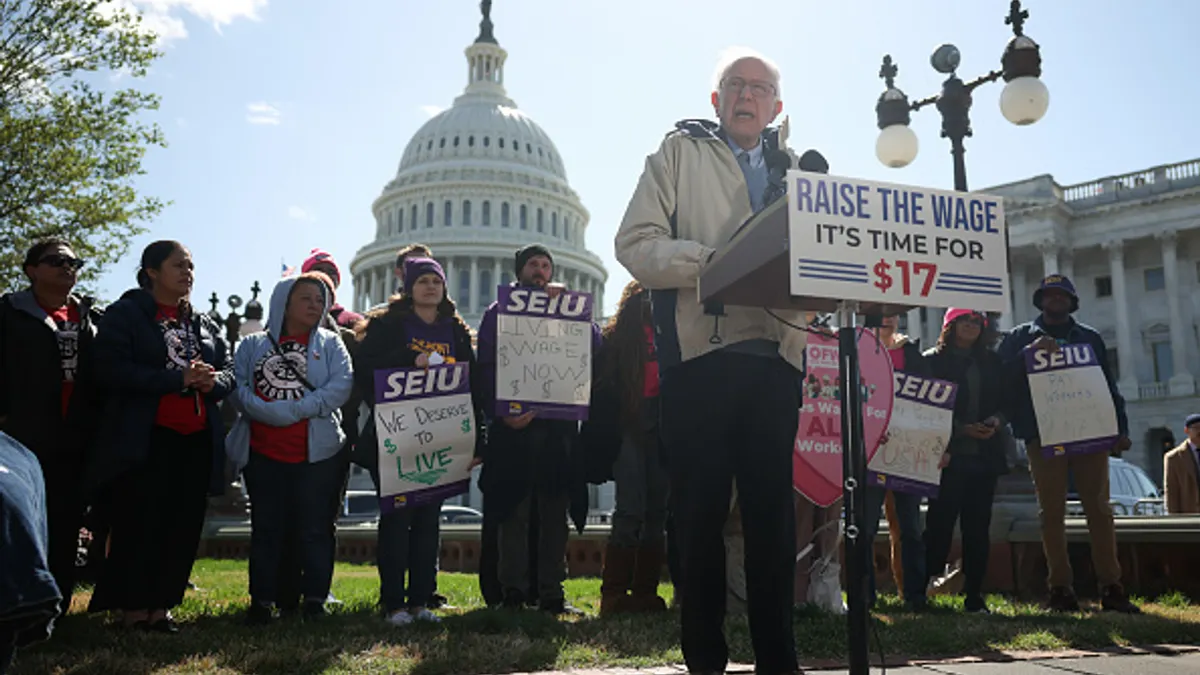When the U.S. Department of Justice sued Facebook last December for intentional discrimination against U.S. applicants, it issued a warning to others: "Our message to all employers — including those in the technology sector — is clear: you cannot illegally prefer to recruit, consider, or hire temporary visa holders over U.S. workers."
DOJ's message echoed last month when the agency announced a settlement resolving its claims with the social media giant. Facebook will pay a $4.75 million civil penalty to the U.S. It will also pay up to $9.5 million to the applicants impacted by its alleged discrimination.
The allegations against Facebook may offer employers some lessons as they attempt to heed DOJ's warning. The biggest lesson, according to Norris McLaughlin Member Raymond G. Lahoud, is that employers must keep recruiting efforts consistent among applicants, no matter their citizenship status.
Unpacking the claims against Facebook
In its December 2020 lawsuit, DOJ claimed "Facebook refused to recruit, consider, or hire qualified and available U.S. workers for over 2,600 positions that Facebook, instead, reserved for temporary visa holders it sponsored for permanent work authorization."
The agency claimed that between January 2018 and September 2019, Facebook reserved jobs for temporary visa holders through the U.S. Department of Labor's Permanent Labor Certification Process. During this time, Facebook did not hire anyone for the 2,606 PERM-related roles except for PERM beneficiaries.
According to DOJ's lawsuit, Facebook's recruiting methods for these positions deviated from the procedure it used for other roles. The adjusted methods were "designed to deter U.S. workers from applying to certain positions," DOJ said. The lawsuit claimed Facebook required, for example, that applications be submitted by mail only. Facebook also did not post about certain job vacancies on its career website. And it refused to review applications submitted by workers in the U.S.
According to the lawsuit, Facebook's actions amounted to discrimination against U.S. workers on the basis of their citizenship or immigration status, in violation of the Immigration and Nationality Act.
In tandem with its settlement with DOJ, Facebook resolved issues flagged by a DOL audit. An early 2021 investigation examined Facebook's recruitment activities related to the PERM applications it filed with the Office of Foreign Labor Certification. The audit revealed Facebook potentially violated recruitment regulations; the settlement requires Facebook to "conduct additional notice and recruitment for U.S. workers" and sets up future audits to ensure compliance.
Kadia Koroma, a spokesperson for Meta (previously Facebook), told HR Dive the company believes its PERM practices met the federal government’s standards but "reached agreements to end the ongoing litigation and move forward with our PERM program, which is an important part of our overall immigration program."
Facebook's 'clearcut discrimination'
As the chair of Norris McLaughlin's immigration practice group, Lahoud has followed the allegations against Facebook since DOJ filed its lawsuit. He sees Facebook's actions as completely intentional.
"To me, what appears is Facebook created two systems: a recruitment system for U.S. applicants and a recruitment system for applicants who need H-1B visas and the like," he told HR Dive in an interview.
The benefit for Facebook was likely threefold, Lahoud said. Foreign workers were likely in most cases talented, less expensive and easier to retain.
The wage and retention issues are key, Lahoud said. Facebook would have been able to pay a worker secured through PERM lower wages compared to a U.S. applicant of equal qualifications. "And they also didn't have to deal with someone leaving — it's almost a guaranteed six years," Lahoud said, referencing the maximum length of an H-1B visa.
"What Facebook did was clearcut discrimination," Lahoud said. "It created two recruiting systems. In some cases it didn't even review resumes for U.S. applicants."
The 'obvious' lesson, and three others
Facebook is far from the only employer to use workers from outside the U.S. — especially in the tech industry. Foreign-born workers made up 19% of the STEM workforce in 2019, according to a report from the National Science Foundation. They accounted for 45% of STEM workers with doctoral degrees in the same year.
When employers recruit talent from outside U.S. borders, they can use DOL's PERM program to offer permanent jobs to temporary visa holders. Federal law requires that DOL certify that there are no qualified U.S. workers able to fill a position before it can be given to a PERM beneficiary. Federal law also requires that employers do not discriminate against workers because of their citizenship or immigration status.
Whenever employers look to recruit foreign-born workers, they'll want to keep in mind DOJ's message to employers in its proceedings with Facebook. As Lahoud put it, there's one "obvious lesson": "Never create two systems of recruiting," he said.
Outside of that clear takeaway, employers can learn three other lessons from Facebook's settlement, Lahoud said.
1. Keep recruiting consistent
Employers need to use the same recruiting methods for foreign applicants that they do with U.S. applicants. "That's critical," Lahoud said. "It's gotta be consistent."
"If you're recruiting a significant amount of people, they've got to be treated equally, in terms of how they're reviewed," Lahoud said. "The question of what status someone has should only come after an offer is made for employment.
If an employer has a companywide policy that it doesn't sponsor people for visas, that policy needs to be on all job applications. If there's a policy that the company only sponsors certain positions, applications should note which ones. Whatever the policy, it must remain consistent.
2. Watch wages
Wage requirements differ according to the type of visa a worker receives. An H-1B visa — the most common employment visa that Facebook uses, Lahoud said — requires employers to pay workers no less than the required wage, which DOL defines as "the higher of the prevailing wage or the employer's actual wage (in-house wage) for similarly employed workers."
There are several other immigrant and non-immigrant visas that have wage requirements, Lahoud said. Those include visas sponsored for permanent residence such as H-2A and H-2B visas.
3. Remember recordkeeping
Employers need to be proactive about recordkeeping, Lahoud said. Specifically, they need to review the duties of each individual from outside the U.S. and ensure they're paid fairly as their jobs evolve.
"It's important they keep up documentation so that if they do get hit with an audit, they're ready for it," Lahoud said. "Any change in location, pay or duties needs to be reflected in documentation with immigration."
Neglecting the update could create a disaster, he noted. "If the company moves location and doesn't update that with immigration, immigration may show up to do an audit and no one is there."
DOJ's proceedings with Facebook illustrate the enduring importance of immigration. The suit was filed when the Trump administration was still in office. It wrapped up under the Biden administration.
"It's really important that employers, regardless of who is in the White House, [...] are compliant with immigration law at every level," he said. "Willful ignorance is not going to be an excuse."





















